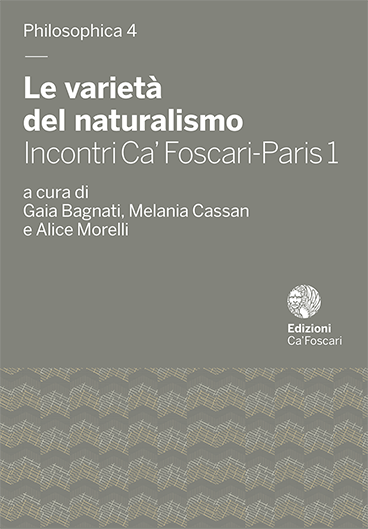- search 341 views
- file_download 24 download
- keyboard_capslock metadata
- How to cite
-
mark_email_readIscriviti alla newsletter
Il naturalismo culturale di Dewey
Il caso della mente
abstract
The essay focuses on John Dewey’s pragmatic naturalism in order to show that the relatively recent naturalizing trend in philosophy should be considered a historically and culturally situated restriction of other forms of naturalism. Dewey’s cultural naturalism is based on a strong continuity between nature and culture, assuming that human intelligent behaviour arises from already existing organic and environmental resources in an entirely contingent manner. This kind of naturalism does not involve physical reductionism: more complex interactions between organisms and their environment, such as human mental behaviour, are seen as innovative, in the sense that they produce forms of organization that, on the one hand, are not reducible to the simple association of pre-existing elements. On the other hand, innovative modes of interaction between human organisms and their naturally social environment have consequence on the natural world: they produce changes within it. The second part of the text presents Dewey’s non-substantive conception of the mind, which has its roots in the non-reversible consequences of the advent of highly communicative and linguistic interactions in the human world as well as in the possibility for human organism to reconsider analytically or reflectively their primarily holistic, qualitatively felt experiences.
Keywords: Emergentism • Naturalism • Dewey • Continuism • Mind

